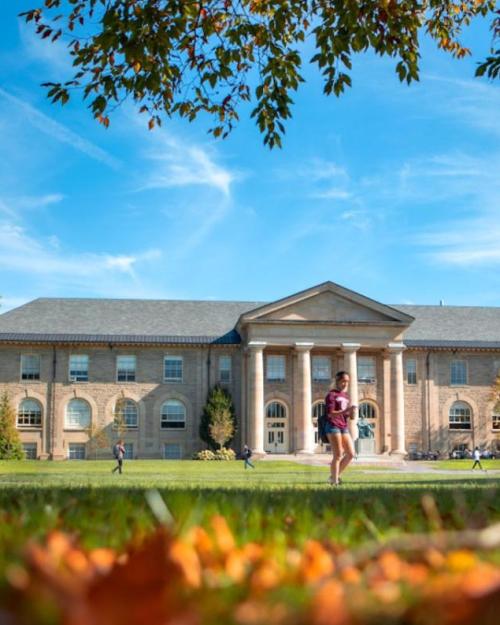As Cornell’s Jewish Studies Program celebrates its 50th year, it’s also celebrating the news that a new Jewish studies major has been approved by the state and the Cornell Board of Trustees.
Plans for the major received strong support from students, faculty and alumni, said Deborah Starr, professor of modern Arabic and Hebrew literature and film in the Department of Near Eastern Studies and a past director of the Jewish Studies Program.
“This recognizes the work we’ve done in Jewish studies as a discipline, making it possible for students to be credentialed in this field,” she said.
Students who major in Jewish Studies will critically analyze Jewish cultures, histories, literatures, media, thought, and religion. Faculty in the program are spread across 11 departments within the College of Arts & Sciences, from religious studies and Near Eastern studies to anthropology and history. Jewish studies majors will also study Jewish experiences in a comparative context, gaining insight into larger questions of global concern. The major will begin accepting students in Fall 2023 and is open to any student in the College of Arts & Sciences. Students throughout the university can take classes or minor in Jewish studies.
“Jewish studies represents something that is both central to Western tradition and also a counter tradition within the West,” said Jonathan Boyarin, the Diann G. and Thomas A. Mann Professor of Modern Jewish Studies and another past director of the Jewish Studies Program. “These efforts (at expanding the program and adding a major) recognize the critical questions Jewishness raises and its place as part of a shared heritage.”
Majors will be required to take 10 courses, including an introductory course. Seven electives will span historical time periods and one course must be from a related field, helping students to situate their understanding of Jewish studies in a theoretical or comparative context. Majors will also undertake a required senior project and participate in a related seminar.
“We felt it was important to give students an opportunity to engage in their own independent research,” Starr said. “The course will be open to any undergraduate and will allow students to form a cohort of people doing similar work.”
Starting in fall 2024, Jewish studies will increase its Yiddish language offerings to three semesters to fulfill the College’s language requirement, expanding Cornell’s offerings in Jewish languages and complimenting its full range of Hebrew courses.
“We’re at a very exciting moment in the expansion of Jewish studies,” said Jason Mokhtarian, associate professor, Herbert and Stephanie Neuman Chair in Hebrew and Jewish Literature and current director of the Jewish Studies Program, “not only in terms of the major, but we’re also welcoming new visiting faculty and offering innovative courses.”
Support for the expansion of the program also came from Elissa Sampson, visiting scholar and lecturer in the Jewish Studies Program, who played a key role in alumni relations, as well as promoting the program’s public image. Noah Tamarkin, assistant professor of anthropology and science and technology studies, participated in designing the major, along with Starr and Mokhtarian.
The development of the major also sends an important message about Cornell’s atmosphere, Starr said.
“The major also speaks to students who identify as Jewish who are looking at institutions that would be welcoming to them, sending important signals about the place of Jewish studies in the intellectual realm here,” Starr said.
Faculty are quick to credit alumni for their support of the program through the Friends of Cornell Jewish Studies, established in 2017, which has allowed the program to hire four new faculty members in the last five years.
“Our program now has real depth, chronologically ranging from Biblical studies to social media, and also spanning continents and disciplines,” Boyarin said. “In the last few years, we’ve built on our existing strengths in Near Eastern studies to develop more curriculum and research expertise in European Jewish studies, world Jewish literature, Jewish history, and the Latin American Jewish experience.”
Eric Roth ’74 and Laurie Roth ’75 are co-chairs of the Friends of Cornell Jewish Studies.
“As undergraduates, both of us greatly enjoyed courses offered in Jewish studies in what was then called the Department of Semitics. Now, nearly 50 years later, we are delighted that the program has finally attained the important milestone of offering an undergraduate major in Jewish Studies in the College of Arts & Sciences,” they said. “Along with our fellow members of the Friends of Cornell Jewish Studies, we aim to create a preeminent academic center at Cornell dedicated to scholarship and teaching of Jewish history, culture and languages.”




